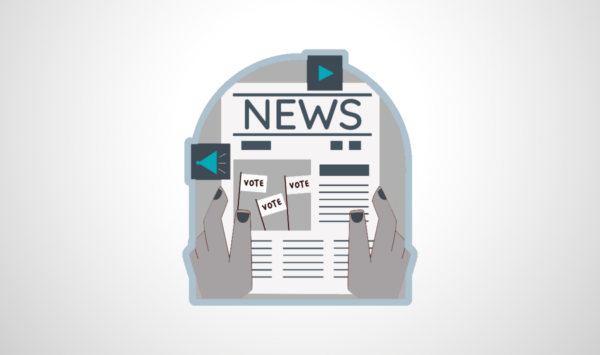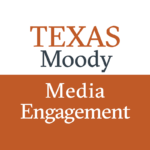
As Election Day approaches, how are newsrooms tasked with covering contentious races handling the pressure? Over the past several months, I spoke with 10 editors at newsrooms in battleground districts or states to learn more about the opportunities and challenges they face. We share their thoughts below, although not always with attribution based on the editors’ preferences. Their responses highlight sharply different visions for the role of the news, showcase thoughtfulness amidst resource constraints, and demonstrate a commitment to serving the public during times of division.
The challenge of time
Time weighed heavily on the minds of editors.
With early voting in full swing in several states, one editor commented that their newsroom had “push[ed] our work forward more into September to make sure that we’re reaching people who are going to be voting on that first day.”
Even with an effort to start coverage earlier, however, the editor worried that “So many of those people are going to be putting their ballot in the envelope or in the mail” before the newsroom has done all of its reporting “and they will not have a clear understanding …and that is really hard to accept.”
Time also factored into editors’ thoughts about election night. Several noted that their print deadline was far earlier than when election results are expected. “The print product is really a gigantic tease to what you’re going to find online right now,” one editor noted.
Knowing that election results will not be immediately available after the polls close, many editors are thinking proactively about how to prepare the public. One editor described the need to share “what people should expect out of elections, so they’re not surprised when … it’s going to take a while for the returns to come in on election night.” Another commented, “We’re planning stories to let people know, don’t get all twisted out of shape if you don’t know the winner of the election Tuesday night, you probably won’t.”
Giving people correct information pre-emptively and preparing them for what’s likely to happen on election night can help build resilience in the face of misinformation – a real concern for editors. “So, what gives me pause?” one editor asked, “We could wake up with not only our elections being undecided [and] a deliberate effort to interrupt the regulatory process by which we count and certify.”
Decisions about fact-checking
Some editors didn’t see fact-checking as their newsroom’s charge. “What I find our readers want is they don’t want us to be the voice of deciding what’s true or not,” commented one editor.
According to another editor, the candidates “do a good job of sort of fact-checking each other. So you sort of take what one candidate says and, ah, try to be fair and balanced and let them let them battle it out and hopefully the readers can discern who is the person that they want to believe.”
Other editors strategically focused their limited resources elsewhere. “Every day I get a news release from one campaign or another … making stuff up and telling lies about the opponent… We’re choosing not to dive into all of those particular things,” said one editor. “[We’re] trying to focus on the candidates and the issues and where they differ.”
Another editor also noted that in spite of the importance of sorting fact from fiction, fact-checking “makes some of the reporters a little uncomfortable because they feel like it’s bordering like editorializing.” The editor did make clear that reporters do have a responsibility to share when something is wrong.
Yet dedicating resources to efforts other than fact-checking did cause some concern. “There is misinformation all over the place and we really have to pick and choose what we’re going to care about. It sounds awful, but we have to. We have to choose our battles. And fact-checking is not easy. It’s incredibly time consuming,” one editor commented. “In terms of seeing misinformation locally and jumping on top of it, generally we haven’t. We sort of cross our fingers.”
Even organizations that are taking on fact-checking – around half of the editors mentioned their efforts – noted the limitations. “It’s a fool’s errand to think that you can go and correct everything that someone says,” lamented Leroy Chapman Jr., Editor in Chief of the Atlanta Journal Constitution. “They can make it up much faster than you can correct it.”
Several described their newsrooms’ careful deliberations about whether to report on misinformation, noting that they might not do so if they think the misinformation had little reach. Relatedly, Chris Quinn, editor of The Plain Dealer in cleveland.com, commented, “We don’t write outrageous statements people make when it’s clearly just to get attention.” Instead, they might do a summary story “without necessarily repeating what’s been said.”
Despite the challenges, several editors shared the sentiment that fact-checking is critical; “Our role has changed. It used to be our role was primarily informing. And now probably more of our role is fixing falsehoods or avoiding falsehoods than it is just informing,” one editor stated.
Identifying where local misinformation is cropping up
Some of the editors had seen more national than local misinformation, whereas others noted seeing misinformation about local races and issues popping up on social media and coming from the campaigns themselves.
Several editors spotted misinformation in letters submitted to the editor. When this occurred, they noted that they did not publish the problematic content, and several editors described proactively reaching out to the letter writers. Bobby Burns, Executive Editor of Adams Publishing Group-ENC, The Daily Reflector, The Standard, for example reached out to a letter writer whose letter he had rejected to share that “some of the information was very questionable and … I couldn’t print it.” Another newsroom stopped accepting local opinion letters leading up to the election to avoid any sense of interference.
Figuring out post-election role
Post-election, continuing to produce high quality reporting was seen as crucial. “Personally, my view of the news industry’s role in in trying to keep the temperature level [down] is to do our job” and report “the truth, as best we can figure it out,” one editor shared.
When it comes to helping people sort out their concerns in the aftermath of a contentious election some viewed this as a clear aspect of their work. One editor saw the newsroom’s role as identifying “common interests and concerns across the county, across political divisions and then hopefully start[ing] some conversations around those common areas of concern and interest.” Others felt that dealing with public reactions in the election aftermath is outside of the newsroom purview. “I’m not their therapist,” quipped one editor.
Several editors saw a role for the opinion page, whether as a place for the news organization to call for civility or as a space for citizens to vent or celebrate and learn about the opinions of others.
One editor expressed enthusiasm for the post-election period, exclaiming, “you get a little bit more confidence back in humanity after you’ve just spent months losing some confidence.” There was a sense of excitement about getting “to actually dig into plans and meet and numbers and some time frames that people won’t commit to when they’re running for election.”
Addressing concerns about biases
All ten editors were aware of possible biases in their work. Some shrugged off concerns as typical “run-of-the-mill Facebook comments that we get often about being biased and being anti-conservative.” Others felt the pressure; one editor noted, “We have to be fair in the way that we cover this election. But you know, one line and one story from one reporter prompted a subscriber to cancel.”
Donald Gilliland, Deputy Editor of News and Investigations and Acting Politics Editor at the Pittsburgh Post Gazette worried about urban bias given that “most of the national reporters are working out of urban offices” and don’t get out and talk to people in other parts of the country.
Another editor worried about the bias that can result from the issues a newsroom covers. “It has gotten a lot more difficult in this age to make sure that we’re sticking to facts,” commented another editor, noting that it’s challenging to cut through the arguing and noise to “[focus] on what’s important.”
Determining the role of AI
Most of the editors expressed optimism about AI’s ability to help reporters, mentioning the ability to go through transcripts and city council minutes quickly, caption and organize photos, produce better headlines, generate sports stories, and summarize content. Yet most editors also had some reservations, noting the need to check AI-generated content carefully, the possibility of bad actors using AI to misinform the public, and AI ripping off copyrighted content.
Only two editors had primarily negative reactions to AI being used in their newsrooms and a third had not yet had time to experiment with it.
When asked what they would do if they suspected that a message from a candidate was AI-generated, most editors said they would reach out to the candidate directly to verify its content. Only one editor mentioned that their newsroom used AI detection software. None of the editors had seen AI-generated political content specifically targeting their community.
Navigating a lack of resources
Laced throughout many of the conversations was a yearning for the days of more staffing and resources. When asked “If you could get one thing to support your newsroom’s efforts to tackle the topics we’ve discussed, what would you wish for?” the results were repetitive:
- “resources”
- “boots on the ground”
- “more reporters”
- “more people”
- “clones”
- “additional staffing”
Only two newsrooms did not mention people, opting instead for “time and wishing candidates would call us back right away” and “a consistent way to help the public understand.”
In spite of the challenges and concerns they face, the editors shared multiple election-related projects that made them proud, including candidate forums and Q&As, polling, panel discussions about the election, a profile of politically distinct communities served by the newsroom, interviews “to get the pulse of the people,” and “packages about key issues” like abortion and immigration.
Interview Participants
Ten editors took part in virtual interviews for this project. Four agreed to have their statements attributed and to be acknowledged. We do so in some, but not all instances, to preserve the anonymity of those requesting it. Four agreed to be listed as participants and preferred not to have their statements attributed. Two editors agreed to participate and preferred not to be named. We acknowledge the participation of the other eight editors:
- Bobby Burns, Executive editor of Adams Publishing Group-ENC, The Daily Reflector, The Standard
- Leroy Chapman Jr., Editor in Chief, Atlanta Journal Constitution
- Patrick Ethridge, Executive Editor of the Albuquerque Journal
- Donald Gilliland, Deputy Editor of News and Investigations and Acting Politics Editor at the Pittsburgh Post Gazette
- Judith Meyer, Executive Editor of the Sun Journal in Lewiston, ME, the Kennebec Journal in Augusta, and the Morning Sentinel in Waterville
- Chris Quinn, Editor of The Plain Dealer and cleveland.com
- Jordan Schrader, Politics Editor at the News and Observer in Raleigh, NC
- Carlos Virgen, Senior Editor at the Modesto Bee in Sacramento, CA



